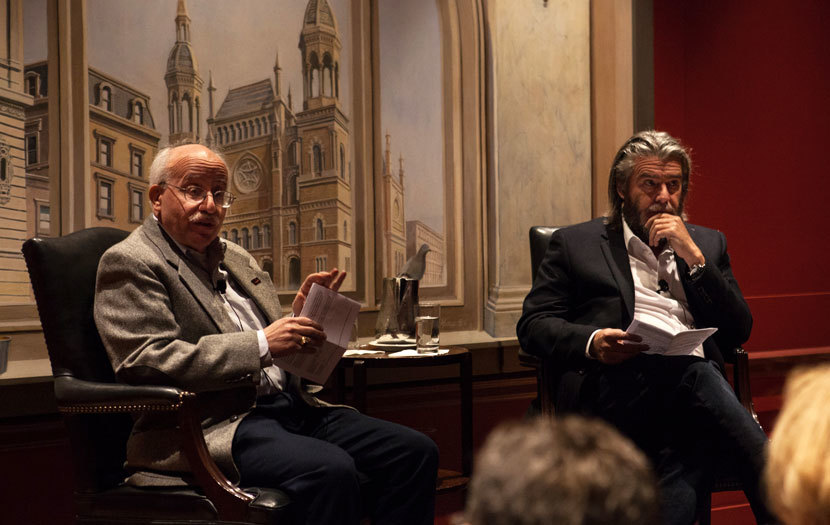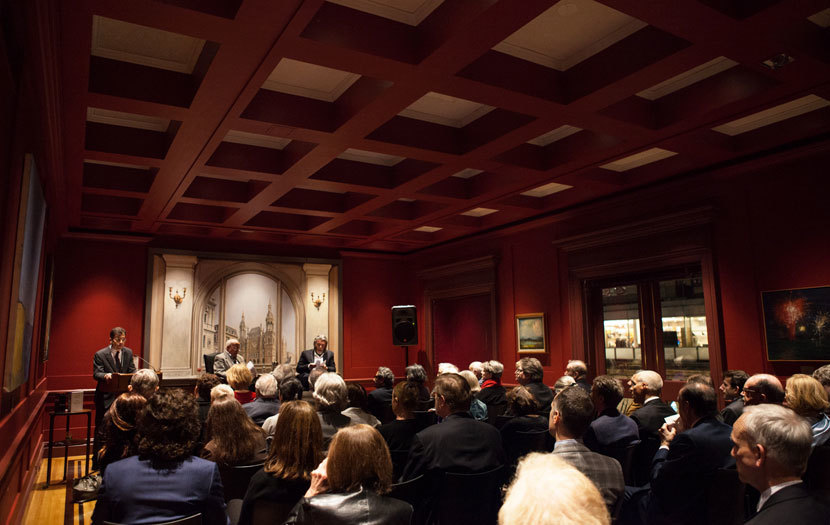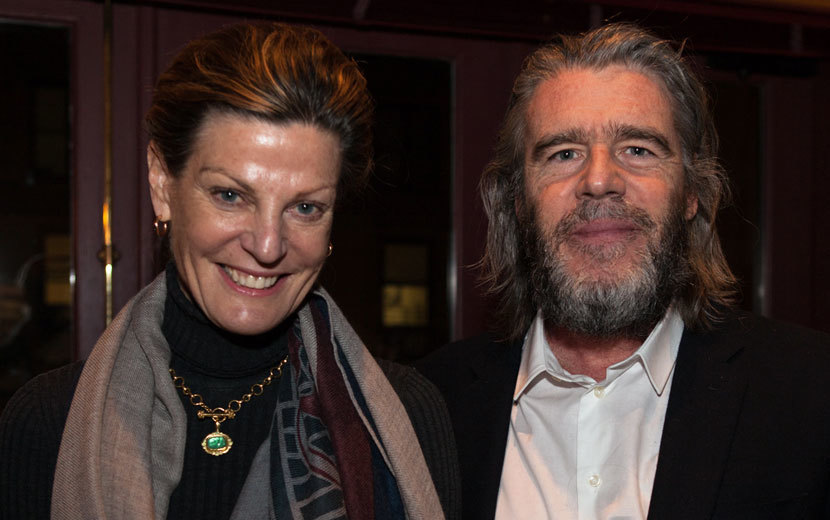Questions of literary influence and tradition took center stage last month in New York City at a Library of America event centered on John Updike’s fiction. Writer Kevin Morris was joined at The Century Association on February 21 by Glenn Altschuler, Thomas and Dorothy Litwin Professor of American Studies at Cornell University, for a conversation about Updike’s legacy.

A longtime entertainment lawyer who co-produced The Book of Mormon on Broadway, Morris is the author of a short story collection, White Man’s Problems (2014), and a novel, All Joe Knight, which was published in December by Grove Atlantic.
Library of America became aware of Morris’s enthusiasm for Updike when he adopted both volumes of LOA’s John Updike: The Collected Stories through the Guardian of American Letters Fund. As if in validation of the Jorge Luis Borges adage that “every writer creates his predecessors,” Morris’s new novel engages in a dialogue with Updike’s famous quartet of Rabbit novels. Like Rabbit Angstrom, Morris’s protagonist Joe Knight is from Pennsylvania, is unhappily married to a woman named Janice, and is haunted by the sense that his entire life has been a falling–off since the days when he was a high-school basketball star. Perhaps appropriately for America in the early twenty-first century, however, Joe is even angrier and more profane than his predecessor ever was.

The resonances between these two characters, along with Updike’s ability to capture the passions, doubts, and longings of America’s post–World War II generation—and to “give the mundane its beautiful due,” to use his oft-quoted phrase—were the grist for Morris’s talk with Altschuler.
Updike fans will be excited to learn that Library of America inaugurates a planned five-volume edition of his novels in 2018; the lead–off volume will include the first book in the Rabbit Angstrom saga, 1960’s Rabbit, Run.




